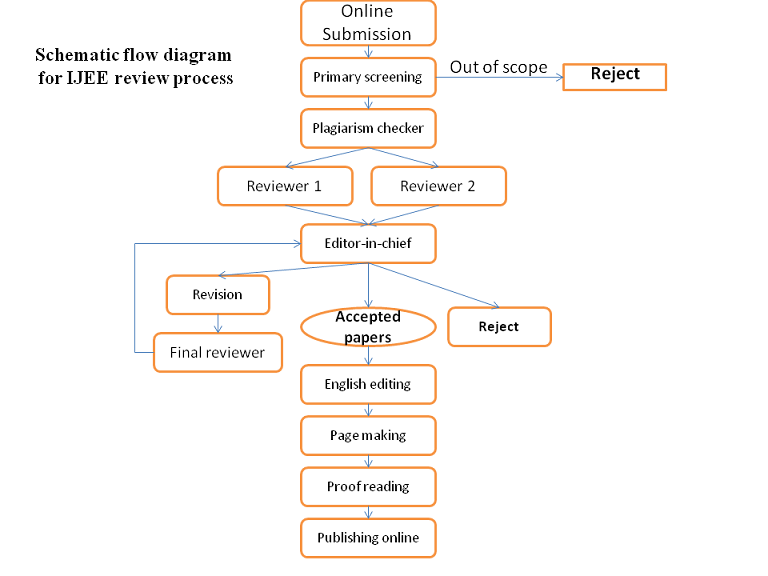IJEE has a rigorous peer-review process. Each submitted manuscript is initially screened and scanned via plagiarism checker, assessed carefully to determine if it fits the aims and scope of the journal. If journal representatives are enthusiastic about the work, the journal editor will appoint reviewers. Those quality selected papers are peer reviewed by experts in the manuscript's particular field under the guideline of editor-in-chief and editors. Authors may suggest potential reviewers for their manuscripts; however, it is not necessary that these reviewers will be asked to review their manuscripts.
The editor in chief will consider the following important points:
- Is the manuscript good enough for peer review?
- Does it comply the journal aims & scope, style guidelines, and instructions for authors?
- Does it make any contribution to the existing literature?
- Is the manuscript assessed by plagiarism checker?
Then,
- Unsuitable papers may be rejected without peer review at the editor-in-chief’s discretion.
- Suitable papers will be sent out for peer review.
- The editor will recommend a decision based on the reviews received.
- The editor’s decision is final.
- The author may then revise the paper and if suitable it will then be accepted for publication.
Reviewers are chosen by an editor (selected by the editor-in-chief) to review the paper. The reviewers are academic or professional researchers working in the field, familiar with the research literature, and content of submitted papers. They offer their time and their expertise voluntarily in order to assist and improve the quality of paper. Authors are encouraged to carry out new research in their topic(s) of interest.
The evaluation and critique generated from peer review provides authors with feedback to improve their work and, critically, allows the editor to assess the paper’s suitability for publication in IJEE.
In IJEE, the peer review process is under double-blind review, in which both the reviewer and author identities are concealed from the reviewers, and vice versa, throughout the review process. This is the traditional method of reviewing and is the most common type applied so far. Meanwhile,
- Reviewer anonymity allows for impartial decisions – the reviewers will not be influenced by the authors.
- Reviewers may use their anonymity as justification for being unnecessarily critical or harsh when commenting on the authors’ work.
IJEE’s review process preceded online (www.ijee.net).

